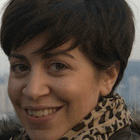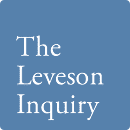Index relies entirely on the support of donors and readers to do its work.
Help us keep amplifying censored voices today.
 The Leveson Inquiry should not forget the need to protect British journalism, says Marta Cooper
The Leveson Inquiry should not forget the need to protect British journalism, says Marta Cooper
(more…)
 Marta Cooper looks at what we’ve learned from the UK’s investigation into the press
Marta Cooper looks at what we’ve learned from the UK’s investigation into the press
(more…)
Th editor of the Sun has called for a “level playing field” between the press and the internet at the Leveson Inquiry today.
Dominic Mohan, who joined the paper in 1996 and has been its editor since 2009, said the combination of an over-regulated press with an unregulated internet was a “very, very worrying thought”.
Mohan said that at the moment, “it feels like every story has to be considered in terms of the Bribery Act, privacy, the PCC.” He added that statutory regulation filled him with “fear” and revealed that he had had discussions with a senior executive at the paper over appointing an ombudsman to deal with readers’ complaints. He said it could be “useful in terms of self-regulation”.
Mohan said the Inquiry itself may have made him more cautious about publishing certain stories. He reiterated that he had “seen mistakes made” at the tabloid and was keen to learn from them. He said his staff will be advised on language use regarding issues such as HIV/AIDS, gypsies and travellers later this year.
He added that, since the Press Complain Commission’s adjudication on a story by the Sun about singer Charlotte Church‘s pregnancy — published before Mohan became editor — he has “not run stories on females under 12 weeks pregnant”.
A new system on paying sources requiring four signatures from managers was instituted in September 2011, which Mohan called “sensible” and “good governance” following the closure of the News of the World after phone hacking revelations.
Earlier in the day, The Sun’s head of legal called prior notification “absolutely correct journalism”, adding that it can go some way in avoiding libel by informing “the other side” of a story before publication.
Justin Walford told the Leveson Inquiry he could not recall an occasion when it was in the public interest to not inform someone of a story involving them.
Ex-Formula One boss Max Mosley, who sued the News of the World for breach of privacy in 2008, has also championed the cause. Yet he lost his bid impose a legal duty of prior notification last May, with the European Court of Human Rights ruling that such a system would have a ”chilling effect” on the press.
Walford described his own role at the tabloid as “risk assessment”, noting that he would deal with legal issues in the following day’s paper, but that it was the editor who would make the ultimate decision of whether running a certain story would be worth the risk.
The hearing continues tomorrow, with evidence from editors of the FT, the Independent and the Telegraph.
Follow Index on Censorship’s coverage of the Leveson Inquiry on Twitter – @IndexLeveson
The Sun’s royal editor has revealed that over half of the paparazzi photos of royals that the paper receives are not published because of ethical considerations.
Duncan Larcombe told the Leveson Inquiry that this was due to concerns over breaches of privacy and the Press Complains Commission code, he rejected any suggestion that Clarence House put the newspaper under pressure not to run certain photographs.
He told the Inquiry that the Sun turned down photos of the royals stolen from Pippa Middleton’s car in 2009, the tipsters asked for £25,000 for the images.
Distancing himself from former editor Kelvin Mackenzie’s “lob it in” approach, Larcombe said that “it doesn’t work like that on royal stories” or on Fleet Street. He said it was particularly important to “get it 100 per cent right” with such stories.
However he admitted that the internet was “the elephant in the room”, many photos rejected by mainstream outlets finding their way online.
Larcombe added that every member of the public was a “potential paparazzo” in the age of camera phones, claiming that Prince Harry had little privacy unless he was “hiding in one of his castles”.
The Sun’s picture editor John Edwards told the Inquiry that more photos were now coming in from members of the public, though the majority of the 15-20,000 images the paper is offered per week still come from agencies.
Discussing pictures of a heavily pregnant Lily Allen shopping in London, Edwards said they were not published after a request from the singer’s agent’s request, despite Allen appearing happy to be shot in the photos. He added that there were celebrities that the paper would be reluctant to use photos of, such as Sienna Miller, due to their past experiences with the paparazzi.
When asked about the intense press coverage of the McCanns, whose daughter Madeleine went missing in Portugal in May 2007, Edwards said he had “tremendous sympathy” for the couple, who returned to a media scrum outside their home in Leicestershire after Madeleine’s disappearance.
“We got it spot on in Portugal, but may not have been so good when it came back to Leicestershire,” Edwards said.